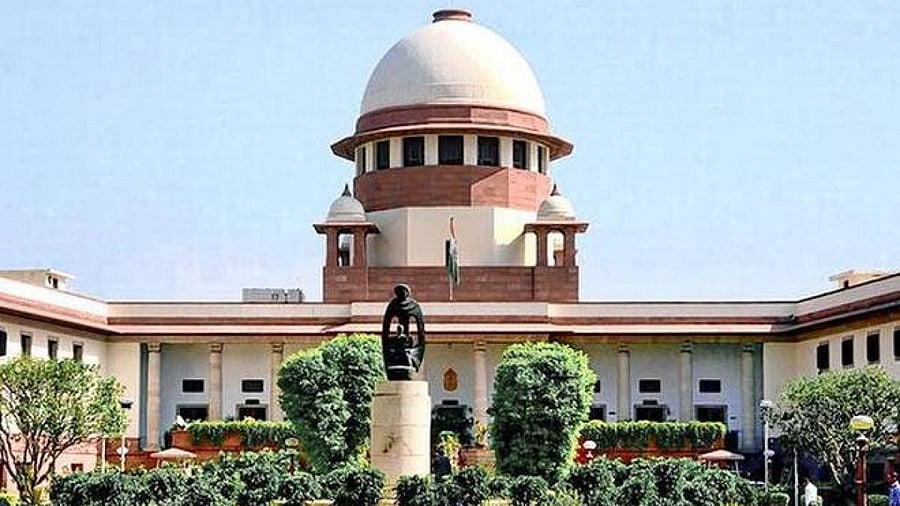
The Supreme Court of India
Credit: PTI Photo
New Delhi: The Supreme Court on Monday sought a response from the Union government and the Election Commission within three weeks upon a plea seeking a permanent ban on those convicted of criminal offences from contesting elections to the parliament and State assemblies.
"Once a politician is convicted, and the conviction is upheld, how can people come back to Parliament and Legislature? That they have to answer. There is also an apparent conflict of interest. They would be vetting the laws," a Justices Dipankar Datta and Manmohan said.
The top court also asked Attorney General R Venkataramani to assist in adjudication of the issue, observing criminalization of politics is a very major issue.
Taking up an application filed by advocate Ashwini Kumar Upadhyay, the court felt the Election Commission must have applied its mind and also have found a better solution than what has been canvassed before the court.
The court said since the matter involved constitutional validity of Sections 8 and 9 of the Representation of People's Act, 1951, the Attorney General should address the court.
The court, however, referred the main petition filed by Upadhyay for expediting hearing in criminal cases lodged against MPs and MLAs to the Chief Justice of India for placing before a larger bench since the matter was previously heard a three-judge bench.
Upadhyay challenged validity of the provision of the Representation of People Act, particularly Sections 8 and 9, to seek a lifetime ban on convicted politicians including sitting lawmakers from contesting elections as opposed to the current six-year ban.
Senior advocate Vijay Hansaria, appearing as amicus curiae, submitted that despite many directions by this court in the PIL, about 5000 criminal cases pertaining to MPs/MLAs remained pending. "It is a matter of shame that after all this, 42% of sitting Lok Sabha members have criminal cases. For 30 years, cases are pending," he said.
Senior advocate Vikas Singh, appearing for Upadhyay, claimed 46-48% people with kidnapping, rape, murder charges come back to Parliament where the sentences are for lesser period of time.
He said the persons who are sought to be debarred are part of the Parliament which has to pass the laws for debarment.
The court also wondered as how after the conviction for criminal offenses, people can be permitted to come back to Parliament and State Legislatures.
The court fixed the matter for consideration on March 4.
